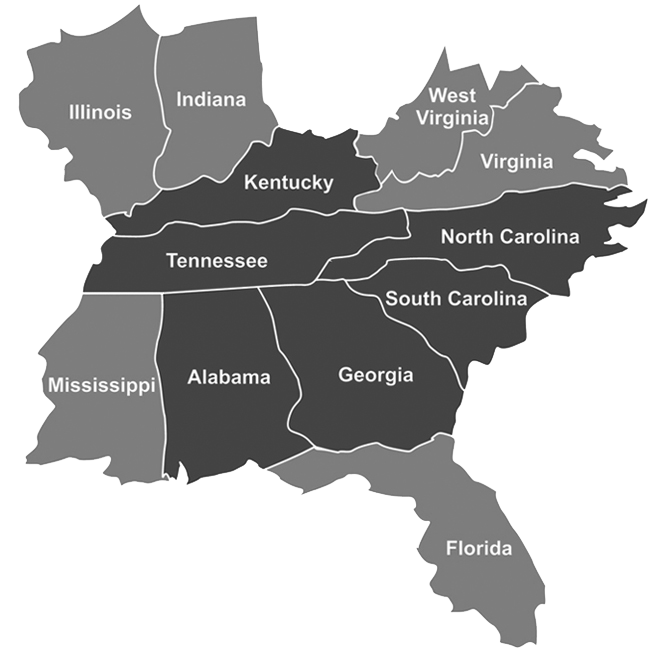The Brightman-Gil Edge
Diversification of Assets
Local Management
Control of Assets

Alignment of interests
Accessibility to Deals
Quick Response Time
-
Charlotte, North Carolina
Charlotte is the most-populous municipality in North Carolina and the 17th-most populous city in the United States. In addition, it is the third-fastest growing major city in the United States.
With the third most banking assets after New York City and San Francisco, Charlotte is a major U.S. financial center. The city hosts Bank of America's corporate headquarters, the east coast operations of Wells Fargo, and many other financial institutions. Charlotte has six Fortune 500 companies in its metropolitan area. In 2013, Forbes named Charlotte among its list of Best Places for Business and Careers.
-
Raleigh, North Carolina
Raleigh, the capital of North Carolina, is the state's second-largest city, after Charlotte. In addition, it is one of the fastest-growing cities in the United States.
Raleigh is home to North Carolina State University (NCSU) and is part of the Research Triangle Park (RTP), together with Durham (home of Duke University) and Chapel Hill (home of the University of North Carolina at Chapel Hill). Following the establishment of the Research Triangle Park (RTP) in 1959, several tens of thousands of jobs were created in the fields of science and technology. Moody's Analytics ranked Raleigh as the number one city with prospects for job growth in the years 2017-2020.
-
Durham, North Carolina
Durham is a part of the North Carolina Research Triangle Park (RTP), one of the largest research parks in the world. In addition, the city hosts Duke University and North Carolina Central University. Duke University, Duke Medical Center, and companies in the Research Triangle Park are the city's major employers.
As a result of the city's educated workforce, the development of research disciplines and the significant growth in employment rates, major global companies such as IBM and GSK (GlaxoSmithKline) have moved their offices to Durham.
-
Tampa, Florida
The city of Tampa is part of the metropolitan area most commonly referred to as the "Tampa Bay Area". Tampa Bay is the second largest metropolitan statistical area (MSA) in the state, and the fourth largest in the southeastern United States, behind Miami, Washington, D.C., and Atlanta.
The area's economic growth is fueled by activity in finance, retail, healthcare, insurance, shipping by air and sea, national defense, professional sports, tourism, and real estate. Tampa hosts the seventh busiest seaport in the United States, and a US Air Force base is located a few miles from the city's center. In addition, the city is home to the University of South Florida (USF) as well as the headquarters of major healthcare, communications, and technology companies.
-
Orlando, Florida
Orlando, one of the world's most visited tourist destinations, is Florida's largest inland city. According to the 2010 U.S. Census, the population of Greater Orlando is over 2 million, making it by population the third-largest metropolitan area in Florida, the fifth-largest in the southeastern United States, and the 23rd largest in the United States.
There has been significant job growth in Orlando, which is home to the large University of Central Florida. While tourism is a main driving force in Orlando's economy, the city is also a major industrial and hi-tech center. It is a nationally recognized cluster of innovation in digital media, agricultural technology, aviation, aerospace, and software design. The Central Florida Research Park in Orlando is the country's 7th-largest research park and the hub of the nation's military simulation and training programs. Patrick Air Force Base, Cape Canaveral Air Force Station, and Kennedy Space Center are all close enough to the city to provide work prospects.
-
Atlanta, Georgia
Atlanta is Georgia's capital and most populous city. The Atlanta metropolitan area is home to approximately six million, making it the 9th largest in the United States.
The Atlanta metropolitan area’s impressive GDP makes it the eighth-largest economy in the country and the 17th-largest in the world. Corporate operations play a major role in Atlanta’s economy. The city hosts the global headquarters of The Coca-Cola Company, The Home Depot, Delta Air Lines, AT&T Mobility, and UPS. Atlanta claims the nation’s third-largest concentration of Fortune 500 companies, provides a home to over 75% of Fortune 1000 companies, and hosts offices of over 1,250 multinational corporations.
Atlanta is a major air transportation hub, with the Hartsfield–Jackson Atlanta International Airport being the world's busiest airport by passenger traffic.
-
Nashville, Tennessee
Nashville is Tennessee's capital and most populous city. Metropolitan Nashville's population exceeds two million.
The city is a center for the music, healthcare, publishing, private prison, banking and transportation industries. In addition, it hosts numerous colleges and universities.
As the "home of country music", Nashville is a major music recording and production center. The city is also a major healthcare center with over 300 healthcare companies, including Hospital Corporation of America (HCA). In addition, many foreign auto companies have moved their offices to Nashville, including Nissan North America.
In March 2012, a Gallup poll ranked Nashville in the top five regions for job growth. In 2013, GQ, Forbes, and The New York Times described Nashville as "Nowville" and "It City". In 2017, Freddie Mac realtors called the city the "hottest housing market in the US". In the same year, Nashville's economy was deemed the third fastest-growing in the United States.
-
Charleston, South Carolina
The largest and oldest city in South Carolina, Charleston is a popular tourist destination.
Charleston is home for the first Opera House, first museum and first community college in the United States. The city is filled with European architecture, art festivals, restaurants and events all year long.
Conde Nast Traveler ranked Charleston as one of top ten cities to visit in the US. In 2011, Travel + Leisure called Charleston "America's Most Friendly [City]". And in 2016 Southern Living magazine awarded Charleston "the most polite and hospitable city in America" while Travel + Leisure ranked it the "World's Best City".


